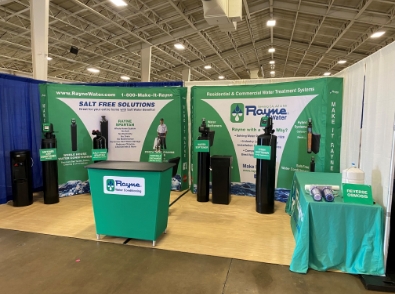Clean and safe water is vital for health and well-being. The portable water test kit is an essential tool for homeowners, businesses, and outdoor enthusiasts alike to ensure the quality of their water supply. At Rayne Water, we provide top-notch water solutions, including whole house water filter systems, reverse osmosis drinking water systems, and more.
Why You Need a Portable Water Test Kit
Testing your water is crucial for understanding its quality and safety. Here are some key reasons to invest in a portable water test kit:
1. Identify Contaminants
- Portable water test kits can identify harmful substances such as chlorine, bacteria, and heavy metals.
- Knowing the contaminants in your water can help you choose the right water filtration system installation for your needs.
2. Ensure Compliance
- If you’re running a business, maintaining water quality is essential for compliance with health regulations.
- Regular testing complements bottleless water cooler options by ensuring your water source remains uncontaminated.
3. Easy and Convenient
- A portable water test kit is easy to use and can be taken anywhere.
- Ideal for testing water at home, at work, or even during outdoor activities.
Features of an Effective Portable Water Test Kit
When selecting a portable water test kit, consider the following features:
- Comprehensive Testing Options: Kits should test for pH, hardness, bacteria, and other common contaminants.
- User-Friendly Instructions: Ensure the kit comes with simple step-by-step guidance.
- Rapid Results: Look for a kit that provides clear results within minutes.
Benefits of Using a Portable Water Test Kit
Increased Awareness of Water Quality
Regular testing helps you maintain control over your water quality, allowing you to take necessary actions.
Cost-Effective Preventative Measure
By identifying problems early, you can prevent costly repairs in your plumbing or potential health issues.
Complementing Filtration Solutions
After testing, consider implementing a water softener system or an iron filtration system for well water to address specific issues.
How to Use a Portable Water Test Kit
- Gather Your Materials: Ensure you have your test kit, clean containers, and any required tools.
- Collect Water Samples: Follow the instructions to collect water samples from different sources.
- Perform Tests: Use the test strips or reagents to check for contaminants as outlined in the instructions.
- Interpret Results: Analyze the color changes or readings based on the packaging to determine water quality.
- Take Action: If contaminants are found, consider options like an alkaline water system or salt-free water softener solutions.
Frequently Asked Questions
What is a Portable Water Test Kit?
A portable water test kit is a convenient tool for testing the quality of water by checking for various contaminants and characteristics.
How Accurate Are Portable Water Test Kits?
While they are reliable, the accuracy can vary based on the kit quality and manufacturer. Always follow the instructions for best results.
Can a Portable Water Test Kit Replace Professional Testing?
For regular monitoring, a portable water test kit is effective, but for comprehensive testing, particularly for well water, professional services may be necessary.
How Do I Remove Hard Water Buildup?
Using a compact water softener for small homes can significantly reduce hard water buildup, improving appliance longevity and water quality.
Where Can I Learn More About Water Filtration Systems?
Check out our water filtration systems for more information on effective solutions for your home or office.
Testing your water has never been more essential. With a portable water test kit from Rayne Water, you can easily monitor your water quality and ensure safety for you and your family. Explore our range of bottleless water cooler solutions and effective water softener systems today to enhance your water experience!


